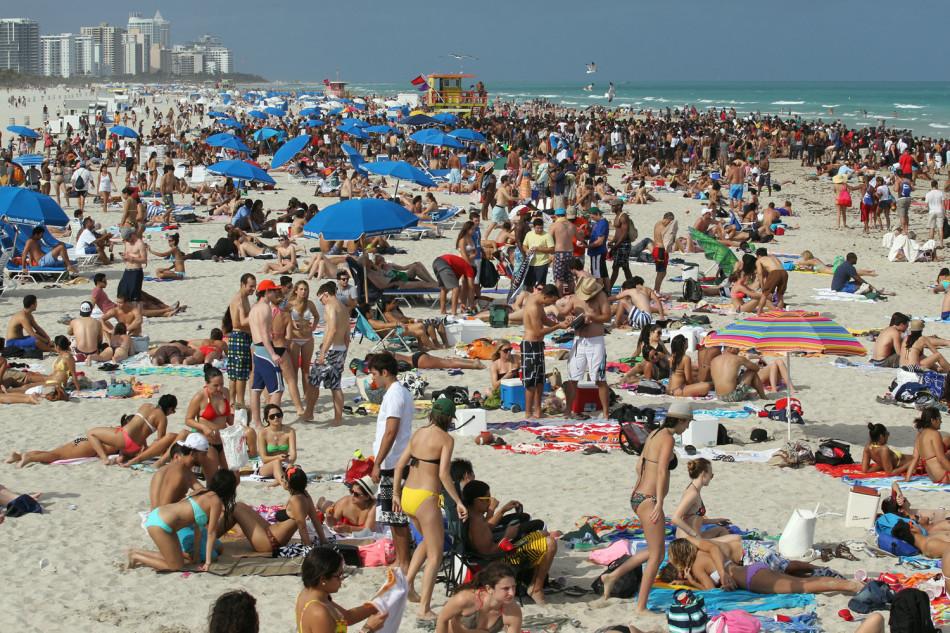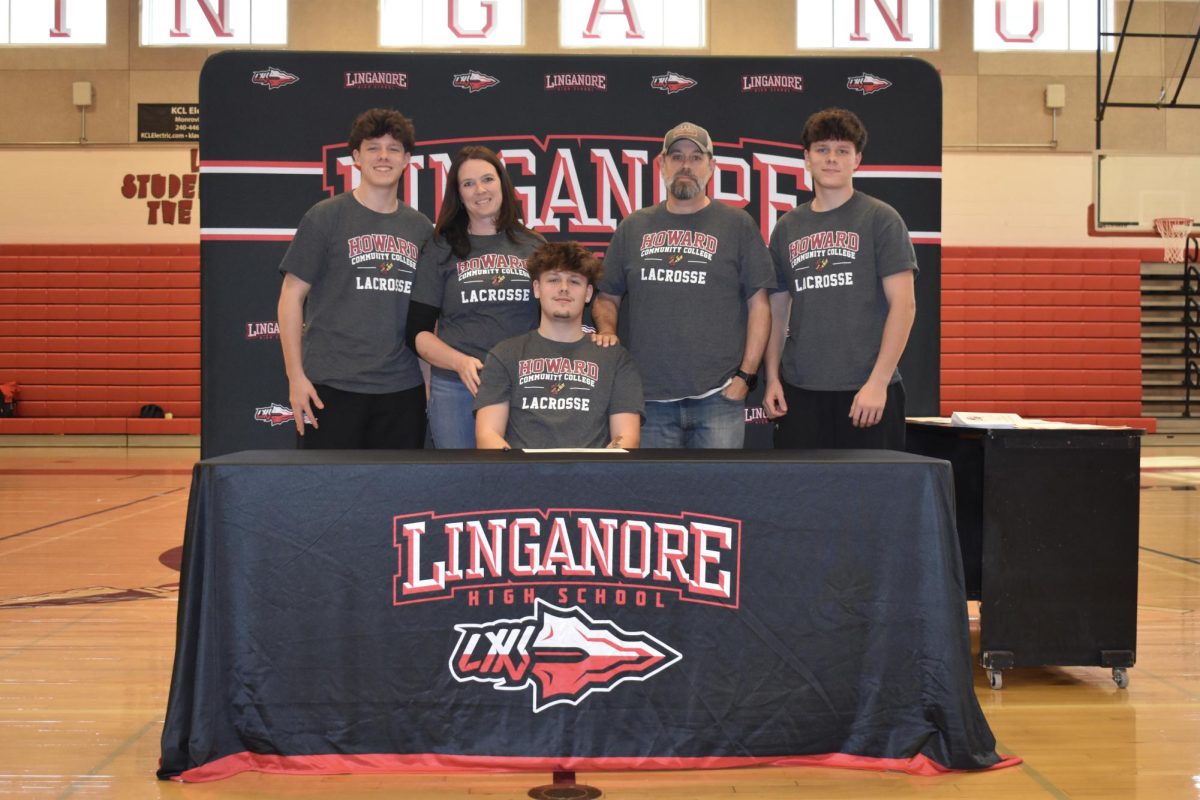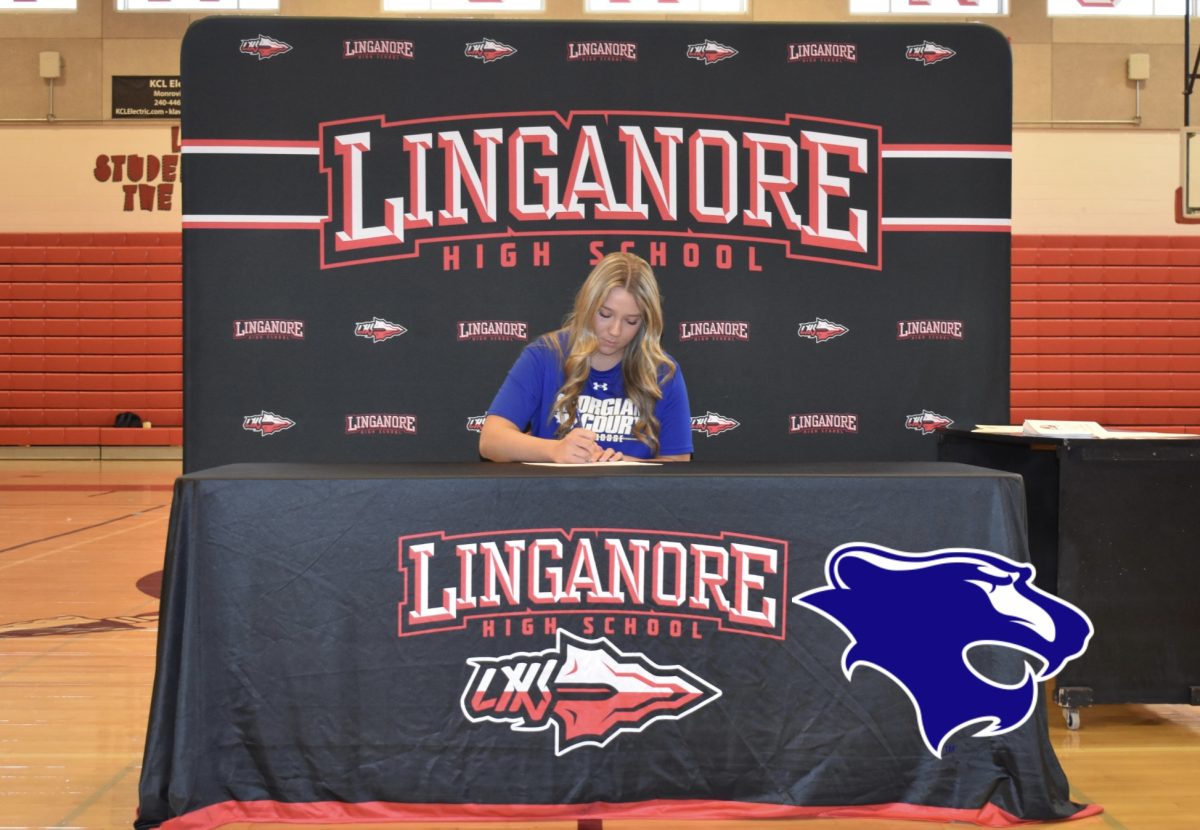We want our vacations back! Give us “cyber days?”
Spring breakers at a beach in South Florida.
April 25, 2014
We all know Mother Nature hasn’t been nice to us this winter. Because of the extreme snow fall, Frederick County Public Schools (FCPS) used 12 snow days (five were already built into the school year). To make up for these days, FCPS took away four days from spring break (April 14th, April 15th, April 16th and April 21st). John Carroll High School in Maryland had other ideas!
Located in Harford County, John Carroll wanted to find a way to make up the snow days without taking away from spring break or summer. They came up with the idea of “Cyber Days.” On “Cyber Days,” teachers will upload assignments to the internet for the students to complete and turn in the next day school is in session.
“I am intrigued about the idea. Certainly FCPS recognizes the importance of having cyber options for our students; however, I think there could be issues for teachers because they are not expected to work on snow days,” says Principal David Kehne.
“I gave assignments to my AP students in anticipation of snow days. Most did them online during a snow day. I gave flexible deadlines for those who couldn’t complete their work,” says Natalie Rebetsky, English teacher. “I don’t know if it would be the same work ethic for all levels of students.”
Almost every class could be given a cyber-assignment, even hands-on classes can do research about the topic.
“I would ask my students to complete landscapes or research things they will provide in their future floral shop,” says Horticulture teacher Thomas Hawthorne.
On John Carroll’s cyber days, each assignment must be at least 30 minutes long. In a recent Lancer Media poll, 38% of LHS students agree that 30 minutes of work is appropriate.
However, according to a poll that John Carroll’s newspaper The Patriot took, 47.6% of students received work that took them over an hour to complete. The policy at John Carroll is if student is unable to get their work due to a power outage, they will have to bring a note the next day school is in session. He/she will then be given extra time to complete the work.
According to The Patriot, 60.9% of students say they learn less on cyber days.
“There is a big difference between reading something and a teacher telling them the information,” says social studies teacher Jamie Hendi. “You’re also penalizing the kids whose parents either cannot afford or chose not to have internet.” Of the 108 students that participated in the John Carroll survey, 74.1% don’t like cyberdays. Only 7.7% of students either liked or loved cyber days. However, 71% of LHS students would prefer to have cyber days compared to having their spring break taken away.
Many John Carroll students made negative comments towards the Cyber Days such as “life ruining,” “horrible,” or “ridiculous.” One John Carroll student shared his opinion saying: “They are stupid and I hate them. If we’re not in class to do our work, why do we have to do it at home? I don’t have Internet at my house, so when my assignments don’t get done, I still end up getting in trouble for it anyway.”
An LHS student responded to the survey saying, “Not everybody in this cyber age, including me, has internet at home. It would be difficult to complete the assignments given to me.”
“If I was a student, I would like Cyber Days because snow days are fun to an extent, but they eventually get boring,” says Kehne.
LHS sophomore Renée Galtieri has a different opinion. “If we had Cyber Days I don’t think I would like them. I would rather spend my time doing more productive things, like shoveling my driveway.”
Nearly one fifth of LHS students agreed with Galtieri, saying they would be too preoccupied with working (such as shoveling snow, babysitting, etc.) to complete their assignments.
“Cyber Days would need to be explored in such a large system like FCPS. We hold over 40,000 students. All the school systems will need to explore it, too, so we can be fair to all of the students and teachers,” says Kehne.
John Carroll’s principal, Madelyn Ball, says they will continue with Cyber Days in future school years.






